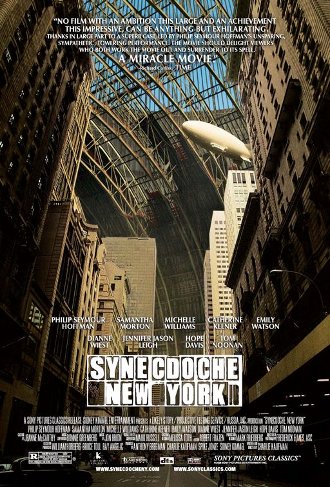
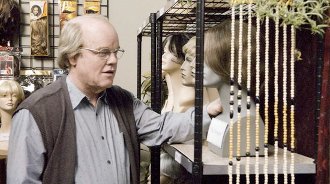
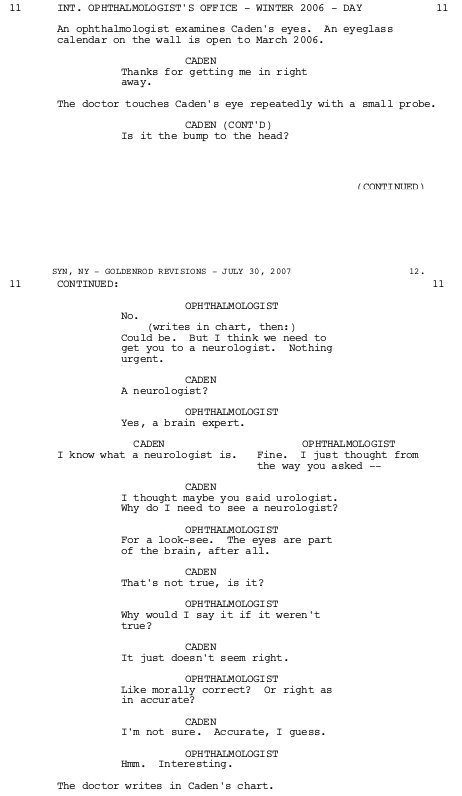
Charlie Kaufman: Synecdoche, New York1) I suppose it truly is a crime to watch this movie in the dubbed German version, but I did so anyway and was shocked to notice that whoever's responsible for the translation managed to miss out on the fact that the poem on the radio (the very first lines in the script!) are by Rilke. Consequently, he has gone through the pains of re-translating Rilke's "Herbsttag" from Stephen Mitchell's English translation back into German! This is just way past awkward, even for a Kaufman film. 2) This is certainly a great movie, of the kind only Kaufman knows to make. It's one of the movies that really makes you wonder why there aren't more movies of this kind - ones that make really innovative use of the endless visual possibilities of the movie screen and its close affinity to the world of dreams...Nonetheless, "Synecdoche, New York" just doesn't quite match the pure genius auf Kaufman's earlier films, especially "Adaptation" - clearly one of my all-time favorites (but I guess I'm biased at least to some extent, since, after all, it's a movie about screenwriting...) And here's what I mean: "Synecdoche, New York", covering, I would guess, at least 30 years in the life of the protagonist Cadan Cotard, ends up getting lost in all its leaps in time: years pass and all we're really seeing is that (surprise, surprise) Cotard has gone yet one more step further on his megalomanical quest for ultimate mimesis (i.e. his theater-production ends up imitating reality, especially its expansions in time and space, to a ever greater and absurd degree). Sure, there's a few Kaufmanian plot-twists along the road, but in terms of dramaturgy, it just isn't as thrilling or as anecdotally funny as I would have hoped - especially after the first 30 minutes or so were simply great stuff. For example, this is probably my favorite scene of the movie (Cotard goes to see an ophthalmologist on account of a recent accident): |


|

|
I don't know if the script does it justice (the uncut script can be downloaded at http://www.beingcharliekaufman.com) but this scene is just great and funny in a very Kaufmanian way (although it would fit very well into "A Serious Man"). It is the 11th scene in the movie (out of a total of 202). And once all the leaps in time get going, these types of scenes just disappear. At least, that's how I see it..."
contributed by Claudio (27.04.2010)
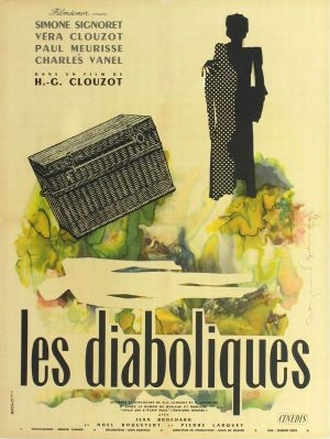
|
Mirja and I saw this movie by chance on TV (arte) a few nights ago. All we knew from the TV guide was that it's a famous and influential psycho-thriller with a great surprise-ending (I have to admit that I can't remember having seen any of Clouzot's films). Throughout the first 15 minutes of the movie, I was getting the feeling that I had read about it somewhere - probably in Robert McKee's screenwriting-guide "Story". But certain pieces didn't fit. Nevertheless, it was once again Mirja, who saw the surprise ending coming before the first 25 minutes had gone by (just like she did when we were in "Shutter Island" a few weeks ago...) Of course, she was pretty much right on the money: To Mirja, Christina's (Verà Clouzot) heart problem gave it all away. By that time I was of the same opinion: that, despite certain inconsistencies, this must be the movie McKee describes as a perfect example of integrating a visual 'Leitmotiv' into a film. In this case he was arguing that the central symbol of "Les Diaboliques" was water. However, as we found out by looking through McKee's book after finishing the movie, his renarration of the plot is way off target in many crucial points - especially, when he's saying that in the end, it is the sound of dripping water that half scares Christina to death - there simply is no sound of dripping water in the scene he is referring to! After having actually seen the film the entire passage in McKee's book looks more like a (pretty bad) memory-protocol than a real plot summary. I don't want to go on much longer about this, but it certainly made me doubt the authority of his book to at least some extend (especially since it's not the 1st but the 4th edition of the book). Anyway, this was supposed to be just another short anecdote on a very good classic psycho-thriller... and ended up being an anecdote on classical screenwriting-manuals as well. If anyone's interested, maybe I'll one day find the time to type up McKee's account of the movie and point out exactly where he's off track. contributed by Claudio (30.03.2010) |
A Perfect World - As close as Clint Eastwood gets to comedy 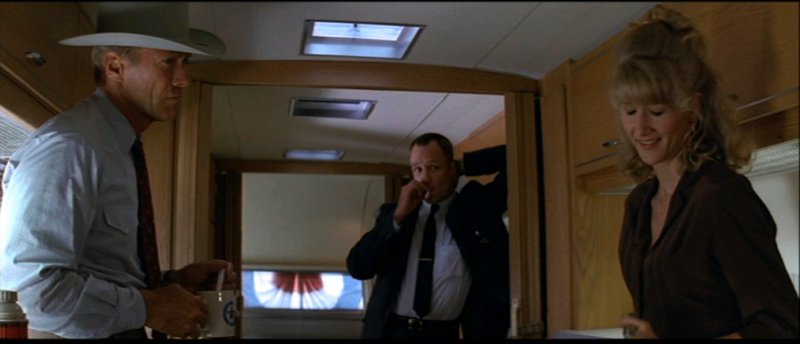
I couldn't find a still in the web with the Sally character in it (a wonderful Laura Dern)- I had to do a screenshot from the DVD myself. Hope Warner Broth. won't sue me for that. It tells so much:
The plot is a standard convicts-break-out-and-cops-chase-them thing. There are two near-rapes, armed robberies, and the two escaped convicts are both dead in the end. Doesn't sound like comedy - does it? Fun and sometimes laughter come from taking the symmetry (the parallel universes of cops on one and fugitives on the other side) to extremes - a wonderfully balanced and never mingled two-world story. Till the very end the two worlds communicate of sorts but do not meet. There is an almost mystical parallelism between 'the 'cop-universe' and the 'convict-universe':
I take it you sensed it: I liked this movie a lot! Back in 1993 when Eastwood was still a
brand name for action and violence the movie wasn't that well received. More than 10 years later
someone under the label of ASIDISJJDSAI wrote at imdb.com under the subject "Action/Drama/Crime ???????????":
"how is this movie a Action movie, I suppose theres a few Action parts to the movie but the correct
genre should be Drama/Crime". Two months later ExcursionGuy84 responded: "I think that's the right wya t
o put it, me thinks." Now "A perfect World" is listed under Crime | Drama | Thriller ......
comedy still missing! 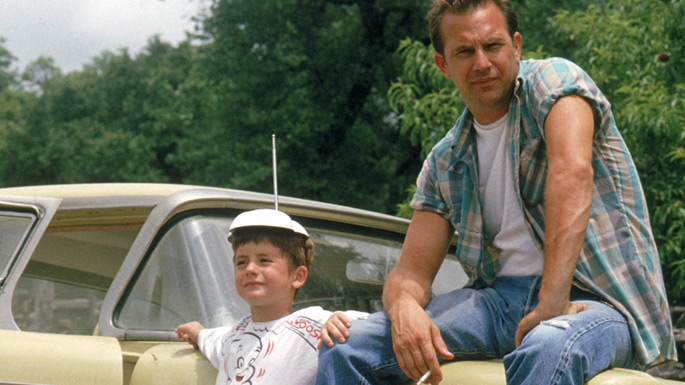
|
|
If there's one thing to be said here about Polanski's "Ghost Writer", it's that it fits perfectly into no less than 4 different themes that we have recently discussed here on the Winter's page:
|
Roman Polanski 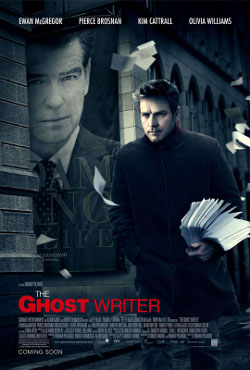
|
|
Doris Dörrie 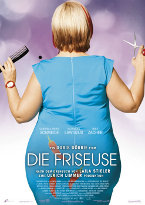
|
Friday Night Double Feature
Renate was at an all-women-birthday-party an I, the driver had to kill some time. By chance two films I wanted to watch anyway were shown with just a 11 minute break in between. And another coincidence: Doris Dörris' social comedy is all about women (catchwords: fat, food, hair, abuse, unemployment, illegal immigrants, suburbs, divorce, shopping malls, apparel) and Grant Heslov's political-thriller-comedy is about a mens world (catchwords: military, Vietnam, American presidents, intelligence agency, desert, Iraq, ego, discipline (reversed), drugs, divorce). The common denominator being divorce. While the wonderful fat women (Gabriela Maria Schmeide - we remember her from "Halbe Treppe") is on a quest for a petty bourgeois life in suburban Berlin (Marzahn), the man (Ewan McGregor) has to go to war and so the provincial Ann Arbor journalist ends up in Irak ... eventually. Not sure whether that's a gender issue but I enjoyed The Men Who Stare At Goats way more than Die Friseuse. The latter is "nice" but you aren't getting really engaged in the fate of this woman and the events pass like pattern in a kaleidoscope. There were not too many laughters and the few were hysterical ones of women looking at the vast proportions of their consexual on the screen. Expecting a weird movie after seeing the trailer many times, the goats-pic was a pleasant surprise. It is an entertaining story with a brilliant cast. Kevin Spacey plays a bad guy for a change but he is not really convincing as a schemer and wartime profiteer. Watching American security and other businesses in Iraq is kind of funny but probably to realistic to be checked under the pure-fun label. They state it's fiction at the credits but there seems to be some serious facts hidden in the source of the script. See the Wikipedia - Jon Ronson article for more. Contributed by Richard |
Grant Heslov 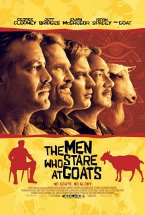
|
|
Phillip Noyce The Quiet American contributed by Richard 

|
Last night we saw by chance The quiet American on TV (3sat). We had wine with friends and coffee with family and were coming home a view minutes late. Anyway - this was quite an unusual TV evening: no sleeping, watching with amazed open eyes the Graham Greene story retold by Phillip Noyce. A menage a trois between an old and laid-back, worldly-wise, and essentially lazy journalist for the London Times (Michael Caine), an obscure young American (Brendan Fraser - CIA agent disguised as doctor bringing medical aid to war-torn Vietnam), and a ravishing Asian beauty (Do Thi Hai Yen). But the love story quickly takes a back seat and you are drawn into the thrilling secrets of the French-Vietnamese war. My favorite film critic Jonathan Rosenbaum wrote "Now further events have shown Greene's novel to be even more prescient about American do-gooders loose in the world. Against France's war in Vietnam in the early 50s Greene juxtaposed a romantic triangle [...] and and the story carries more bite than ever.". The movie was held back a year apparently because of 9/11 and the Irak War and today still you are immediately reminded of Afghanistan an all the Western do-gooders over there. The film was shot by one of our favorite cameramen Christopher Doyle. Visualizing war and terror seen with the eyes of Michael Caine is breathtaking and these scenes alone are well worth watching this movie. A glance at the list of executive producers Sydney Pollack, Anthony Minghella, Chris Sievernich, and Nigel Sinclaie gives you a hint that this wasn't meant to be your average Hollywood love and action movie but that it has a political message to convey. |
|
Reha Erdem Kosmos contributed by Richard 
|
Going into the movies blindly knowing nothing more than titel, time, and location is the advantage of a film festival. And above all this is true for the Berlinale - probably the festival with the most numerous screenings worldwide. Watching Kosmos at the remote International was one of this moments. It was just a convenient time and location (we were there anyway for the previous show) and we had no expectations at all. The film begins and ends with the protagonist Kosmos emerging and vanishing in a vast and cosmic snowscape. He is a thief and a healer and a supernatural figure strangely disconnected from human needs except one: his perpetual quest for love. Due to his healer skills Kosmos is somewhat accepted in this remote Turkish village in the middle of nowhere at a closed border. The town, the tea houses, the snow, the derelict streets and buildings, the omnipresence of the military, all this reminds you of Orhan Pamuk's Snow. This film and the book share the dense, magical atmosphere but where Pamuk has a political context, Kosmos is biblical or better: mythical. You are reminded of Pasolini's Teorema where Terence Stamp (like Sermet Yesil in Kosmos) "...gives unstintingly of himself, asking nothing in return. Then one day he leaves, as suddenly and mysteriously as he came." (Wikipedia) There are some unexplained magical scenes with an object from outer space - at least that's what you think it is - adding to the mystery. The bottom line of the review from THR was: "Too much happens too many times in this potentially brilliant parable." (The Hollywood Reporter) For me it was neither too much nor too many, it was one of the highlights of the Berlinale and one can only hope that this film will find a distributer in Germany. |
|
Martin Scorcese 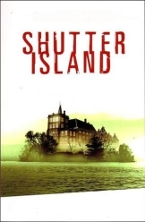
|
This says nothing against the quality of the movie, but only 15 (!) minutes into it, Mirja
revealed to me what she thought was to be the main revelation at the end (I won't spoil it here,
of course). As it turned out, she was, naturally, right on the spot. The clues were there, but I
for one wouldn't have been able to think that far ahead, as the movie really keeps you short of
breath. I could not really find a whole lot of "Scorsese" in the movie - it stays extremely true
to the thriller / film-noir genre conventions. But at that, it is very dense and has a great
atmosphere. Sometimes, though, it comes across as a bit exaggerated, especially when
Scorsese tries (I guess that's one point where he's attempting to make his signature show through)
to fit every single trauma of the American society in the 50s into one film, sometimes into a single
sequence. "Spiegel Online" found a very peculiar, not to say pathetic, way to put it: "[DiCaprios]
Mantel scheint dazu angetan, Kugeln abzuhalten. Die gigantische Krempe seines Huts wirkt, als sollte
sie - wir befinden uns in den naiven Kindertagen des Atomzeitalters! - vor einem möglichen
nuklearen Fall-out schützen." I have no idea how he came up with that one... |
copyright 2009 - 2020 Richard Winter
Ideen, Anregungen, Kritik? Einfach ein Mail schicken an
richard@richardhwinter.de